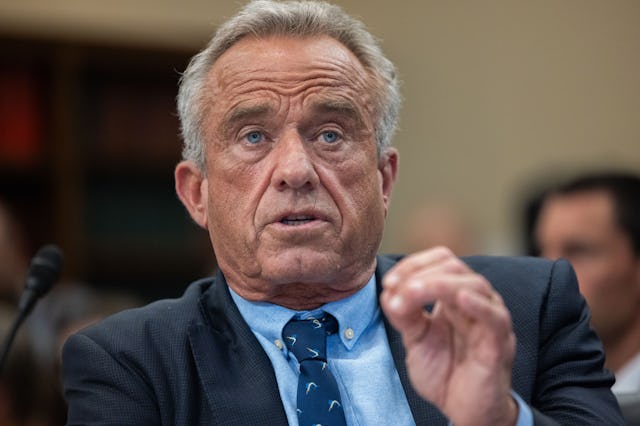RFK Dismisses CDC's Entire Vaccine Advisory Committee In An Unprecedented Move
ACIP is scheduled to meet in 15 days: it is unclear how new members can be properly vetted in that time.

On Monday, Health and Human Services (HHS) secretary Robert Kennedy published an op-ed in The Wall Street Journal announcing a change that will profoundly affect vaccination efforts in the U.S.: the unprecedented dismissal of all 17 members of the Advisory Committee on Immunization Practices (ACIP).
“Vaccines have become a divisive issue in American politics,” Kennedy wrote, “but there is one thing all parties can agree on: The U.S. faces a crisis of public trust. Whether toward health agencies, pharmaceutical companies or vaccines themselves, public confidence is waning. ... The public must know that unbiased science guides the recommendations from our health agencies. This will ensure the American people receive the safest vaccines possible.”
Kennedy also noted that without these sweeping changes to ACIP — whose members serve four-year appointments — the Trump Administration would not have had the opportunity to secure its own experts until 2028. His break with the inveterate committee began to appear last month when he bypassed ACIP to announce that the FDA would no longer recommend Covid-19 vaccines for healthy individuals under the age of 65.
Established in 1964, ACIP provides guidance on how best to control vaccine-preventable diseases, including recommendations for routine administration of vaccines to the development of vaccine schedules. ACIP members are experts in relevant fields, including immunization practices and public health, use of vaccines in clinical practice, vaccine research, vaccine efficacy and safety, and at least one must be an expert in social and community immunization programs.
Kennedy’s accusations of conflict of interest appear to be largely based on a misunderstanding of a 2009 report, which he has cited to claim that “97% of [ACIP members] had conflicts.” In this case, “conflicts” refer to mistakes in paperwork (e.g. forgetting to initial or date a section). No serious conflicts in the 16-year old report were found.
Despite the secretary’s claims, members are doggedly vetted for such conflicts of interest. No member may be employed or involved with companies or employees of vaccine manufacturing companies, including holding stocks or serving on advisory boards for or affiliated with vaccine manufacturers. Any potential conflict of interest, including even tangential or indirect association with a vaccine manufacturer, is transparently available on the CDC website.
For example, during last June’s meeting, for example, Dr. Yvonne “Bonnie” Maldonado recused herself from votes on Covid-19, pneumococcal, and influenza vaccines after disclosing that, through her work at Stanford University, she had served as a principal investigator for a vaccine trial.
The move has drawn strong criticism from governing medical bodies, including the American Academy of Pediatrics (AAP). In a statement, president Susan Kressly warned of increased uncertainty for families regarding vaccination.
“We are witnessing an escalating effort by the Administration to silence independent medical expertise and stoke distrust in lifesaving vaccines,” she wrote. “Creating confusion around proven vaccines endangers families' health and contributes to the spread of preventable diseases. This move undermines the trust pediatricians have built over decades with our patients and leaves us without critical scientific expertise we rely on. ... Families and children will be the ones to pay the price for this decision.”
Tina Tan, president of the Infectious Diseases Society of America (IDSA) was similarly critical and concerned.
“Secretary Kennedy’s allegations about the integrity of CDC’s Advisory Committee on Immunization Practices are completely unfounded and will have a significant negative impact on Americans of all ages,” she wrote in a statement, continuing. “ACIP is a highly qualified group of experts that has always operated with transparency and a commitment to protecting the public’s health. Unilaterally removing an entire panel of experts is reckless, shortsighted and severely harmful.”
ACIP meetings take place at least three times a year. The next meeting is scheduled from June 25 to 27. Kennedy is ultimately responsible for the appointment of new ACIP members, but it is unclear how exactly new members will be properly vetted and appointed within the next 15 days.